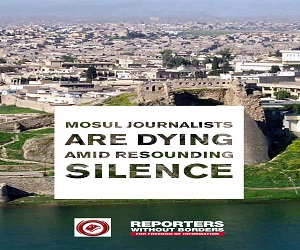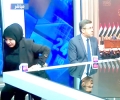JFO, Dec 2017
The Iraqi parliament is currently working on a freedom of expression draft law. This legislation contains several articles which civil society believes would curb free speech in Iraq.
The draft law can be seen as an attempt to restrict rights that are fundamental to the practice of democracy and accountability, the draft law was written in response to escalating demonstrations which took place in 2013 to protest the lack of services in the country and to call for the abolition of a retirement allowance for members of the House of Representatives, who often serve for only a limited amount of time. The fact that amendments to laws are being proposed within voting sessions is problematic as well. This prevents draft laws from being reviewed by specialized committees.
Restrictions on freedom of expression
Freedom of expression is not absolute and can be restricted when it conflicts with other rights (such as hate speech or incitement to murder). However, international law declares that freedom of expression is the rule, and that any restrictions on it are the exception, allowed only in order to protect the rights of others, national security, public order, public health and morals (as stated in Article 19 (3) of the International Covenant on Civil and Political Rights). A restriction is legal only if it meets very specific and well-defined conditions. The right to freedom of expression cannot be limited according to the whims of the person in charge of law enforcement. Rather, laws and formally recognized regulations should be applied only by legislative authorities and law enforcement.
Sanctions against journalists and media professionals
The people who were to violate the law on freedom of expression and have to appear in Iraqi court, would have to do so in a civil lawsuit or in a criminal case. In a civil lawsuit the purpose is to seek compensation for any material and/or moral damage caused to the plaintiff as a result of the defendant’s publication. All appeals against civil action decisions are reviewed by the Court of Appeal. After the completion of the investigation proceedings, the investigating judge either decides to close the case due to insufficient evidence or he/she refers it to the Misdemeanors Court to decide.
The appeal is reviewed by the Court of Cassation. The problem has been exacerbated by the abolition of the Court of Publishing, which was staffed by experts in the field, capable of interpreting complicated cases requiring expertise. Since its abolition all cases related to publications are classified simply as ‘defamation crimes’.






.jpg)









